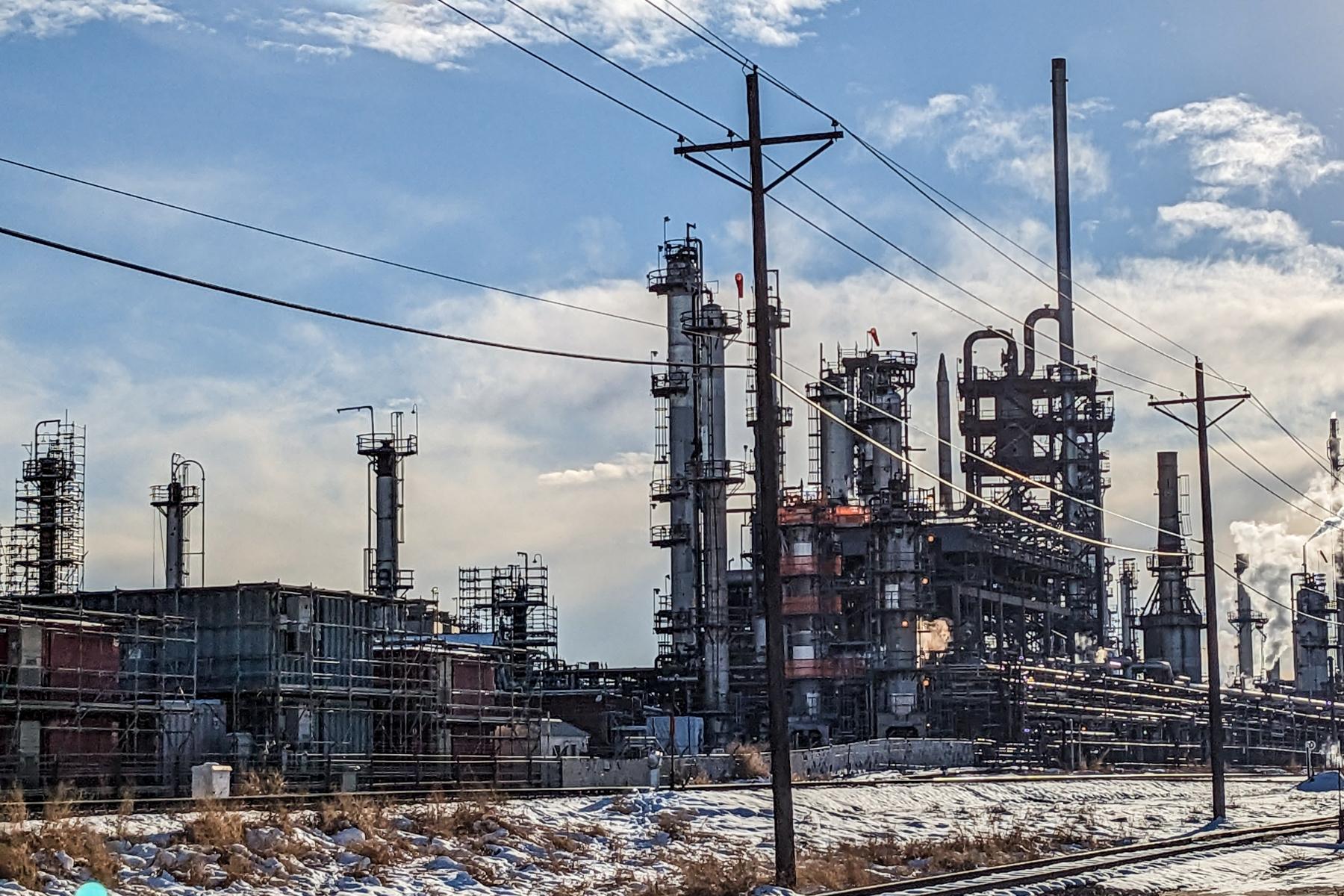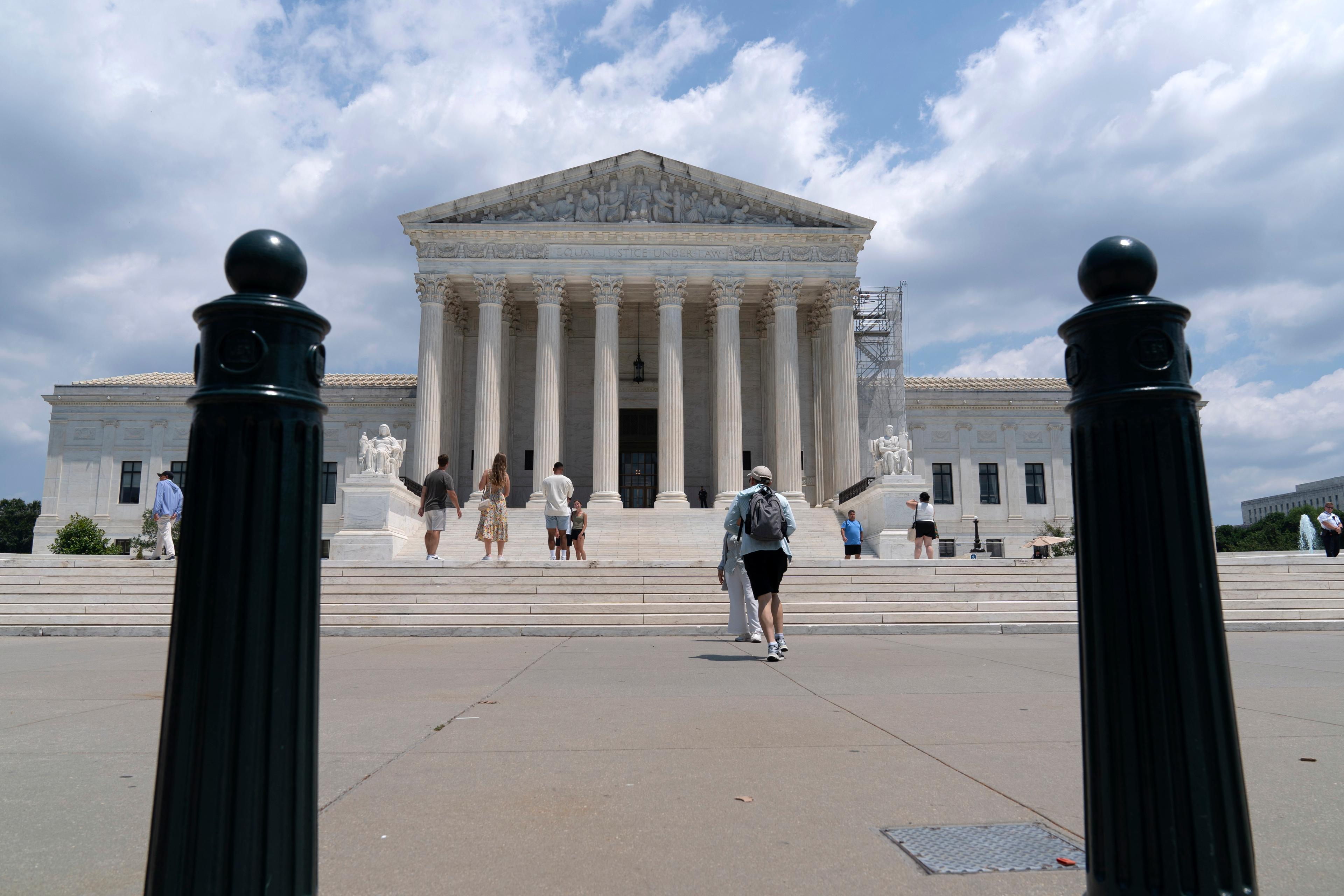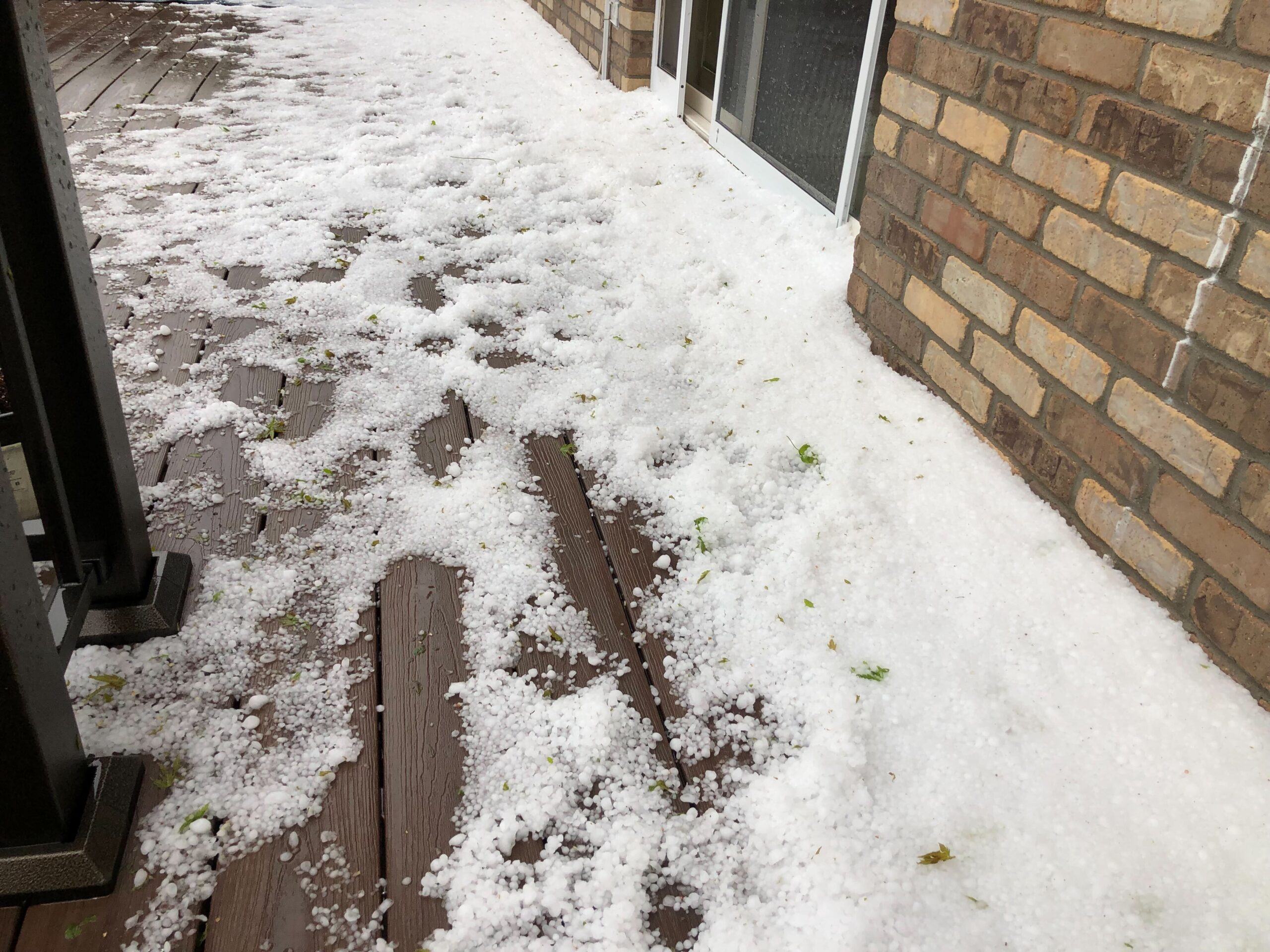
Recent malfunctions at the Suncor Energy refinery in Commerce City not only injured two employees and forced the company to temporarily pause operations. They may have caused an illegal release of carcinogenic benzene into an adjacent waterway.
The company reported the release to state regulators on Jan. 6, noting elevated benzene levels in one of its permitted discharge locations on Sand Creek. The state permit allows the refinery’s operators to release water with benzene concentrations of 5 micrograms per liter. Samples taken on the two previous days show levels reached 7 and 9 micrograms per liter respectively.
The potential violation occurred due to the "discharge from industrial wastewater," according to a report and emails in the state’s public pollution database. It notes the company responded by working to determine and correct the cause but doesn't offer a more thorough explanation.
Emails attached to the pollution report provide some clarity.
A message from Heather Young, the field services section manager for the Colorado Water Pollution Control Division, said the elevated benzene levels "may be related" to a fire at the refinery. The event could have caused the facility's wastewater system to collect reformate — a high-octane ingredient in gasoline — which bypassed an on-site water treatment plant and flushed into Sand Creek, she wrote.
"As a response, Suncor is isolating areas that may be contributing to benzene in the collection system," Young noted in her message.
Benzene is a common chemical known to cause blood cancer. In 2011, benzene pollution concerns forced Suncor to build a 30-foot-deep barrier to keep contaminated groundwater out of Sand Creek, which feeds directly into the South Platte River.
Nearby communities — including Brighton, Thornton, and Aurora — use the waterway to supply some of their drinking water supply, according to a recent report from the environmental advocacy group Earthjustice. Other water districts rely on the South Platte River for irrigation.
Gabi Johnston, a spokesperson for the Colorado Department of Public Health and the Environment, said Suncor sampled Sand Creek below its outfall on Jan. 4 and Jan 5. Those tests revealed benzene concentrations of 1 microgram per liter, below Suncor’s permit limits and the EPA’s threshold for safe drinking water.
State regulators nevertheless notified downstream water users of "potentially impacted water systems as a courtesy," the emails show.
A Suncor spokesperson declined to offer any further information about the water pollution report, saying it couldn't meet a deadline provided by CPR News. The company hasn't filed any reports of excess pollution under its state water quality permit since the January benzene report.
Johnston said federal regulations allow permitted facilities to release specified amounts of benzene. Since the recent releases exceeded those permitted amounts, Suncor must submit a public report by the end of February detailing the cause of the release and precautions to prevent a similar event.
While state water regulators did not send a press release about the incident, Johnston said the pollution report was posted online and available to the public. She said water suppliers are required to tell the public about any confirmed contaminations of drinking water.
“Downstream users are aware that Suncor has a permit to discharge benzene and are therefore aware there is a presence of benzene in the creek. They have treatment processes in place to protect their drinking water quality,” Johnston said.
The revelations raise new questions about the recent malfunctions at Colorado's only oil and gas refinery. Here's what we do know.
Suncor’s recent problems started during the deep freeze that blanketed Colorado the week before Christmas. Leah Schleifer, a spokesperson for the state air quality division, said the cold weather tripped a hydrogen plant at the refinery and caused a cascading series of failures.
Suncor has declined to answer specific questions about the malfunctions, but it has released a number of public statements about the ongoing problems. Those revealed a pair of fires had occurred at the refinery, one of which hospitalized two employees on Christmas Eve.
The Canadian oil and gas company has not provided any update on their injuries. The U.S. Occupational Safety and Health Administration has opened an investigation, federal records show. Suncor does not expect to resume full operations at the refinery until late March.
After decades of air pollution violations, many community and environmental advocates greeted the news with a sense of relief. Those feelings have evaporated as the facility continues to vent steam and burn off excess gasses, which Suncor has said is part of its effort to address the ongoing shutdown.
Loa Esquilin Garcia, a Suncor spokesperson, said the company does not provide updates on "day-to-day work," but shared the refinery is in "safe mode" during an ongoing investigation and repairs.
That means the company is running equipment at lower-than-normal pressure levels to assist repairs, Garcia said. She added no layoffs have occurred and the company will likely increase personnel as it tries to resume full operations.









